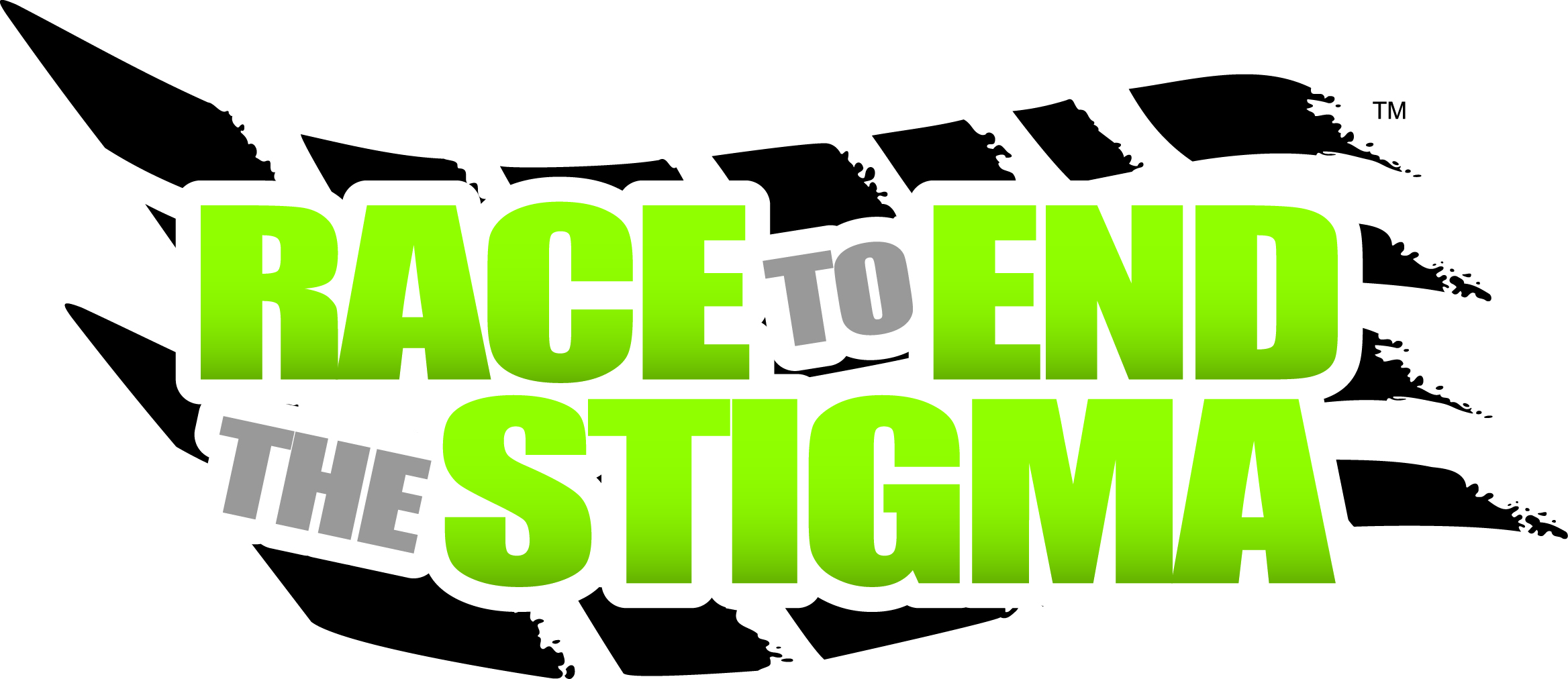
Congratulations to Our 2022 Scholarship Winners!
The Race to End the Stigma Scholarship was created by the Carlos Vieira Foundation to start the conversation about mental health. The Race to End the Stigma Scholarship is granted annually to graduating high school seniors who are interested in mental health awareness or who are willing to share their story about mental health in an effort to end the stigma. We are excited to announce the ten recipients of our Race to End the Stigma Scholarship for the 2021-2022 School Year!

Alexia Alameda
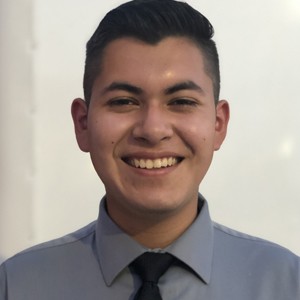
Alfredo Moran
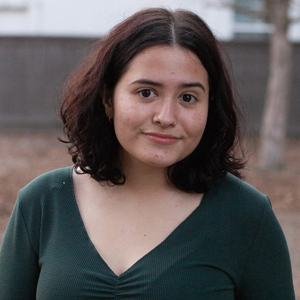
Alyssa Orozco
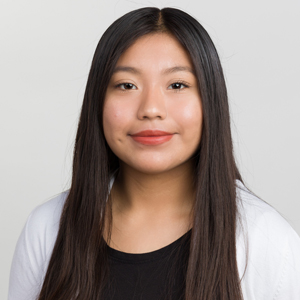
Araceli Vazquez
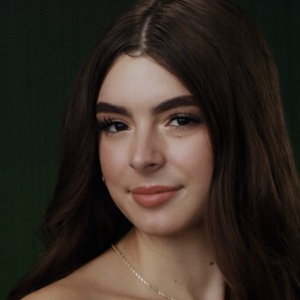
Aubrie Moore
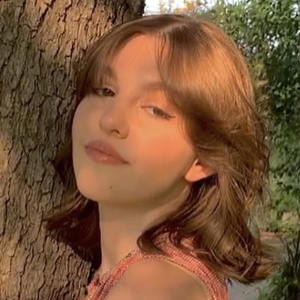
Avalon Carlson
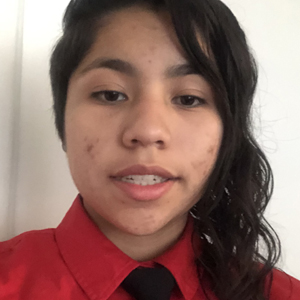
Brittany Rangel
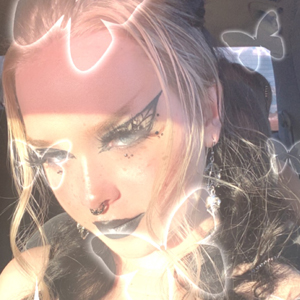
Cali Johnston
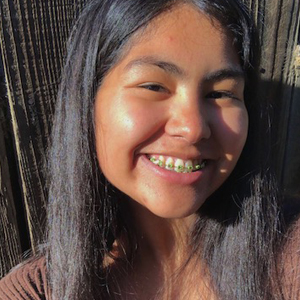
Diana Perez
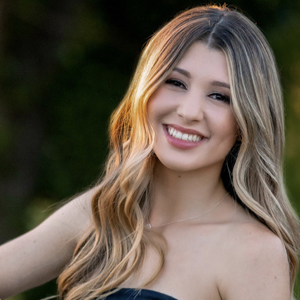
Emma Stevens

Giselle Salazar
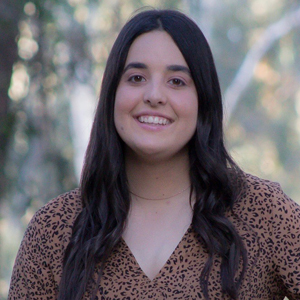
Jacee Bento
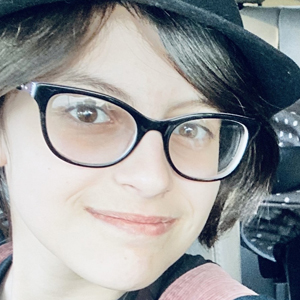
Jasmine Burkeen
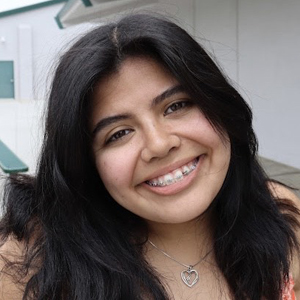
Jennifer Garcia
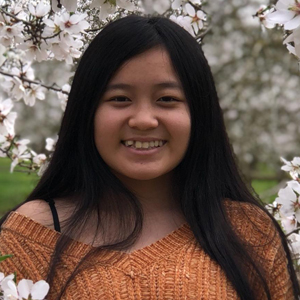
Katalina Yang
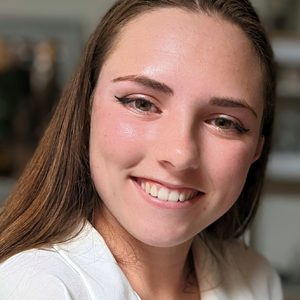
Madison Scroggins
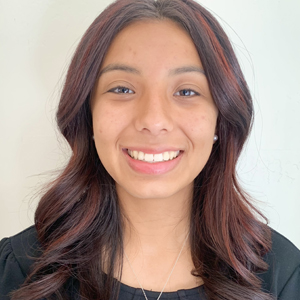
Mone Rocha
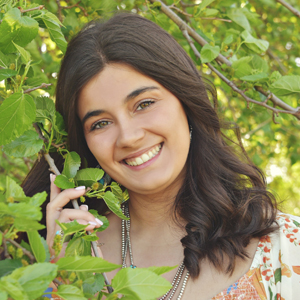
Morgan Oliveira
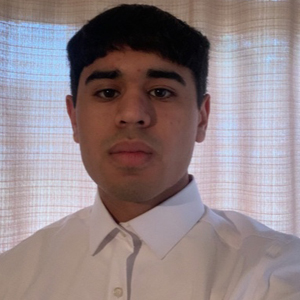
Nicolas Zarate
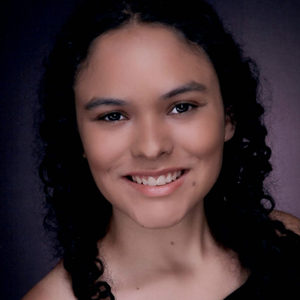
Rebekah Raiford

Shannon Magee
Scholarship Essays
Click the tabs below to see each of the essays submitted by our scholarship recipients.
*The essays are in no particular order and are being kept anonymous*
- Essay 1
- Essay 2
- Essay 3
- Essay 4
- Essay 5
- Essay 6
- Essay 7
- Essay 8
- Essay 9
- Essay 10
- Essay 11
- Essay 12
- Essay 13
- Essay 14
- Essay 15
- Essay 16
- Essay 17
- Essay 18
- Essay 19
- Essay 20
Personally, I have struggled with my mental health, and continue to to this day. I don’t believe it is depression, more so a form of anxiety. I have yet to get help even though I have friends who have gotten help that recommend to me that I go talk to someone. To be completely honest, I don’t remember the last time I was happy. I feel as though my life has meaning and purpose, though I feel no positive way about it. I know it is all in my head, and everyone doesn’t hate me or think I’m weird, but there is just some psychological barrier that prevents me from being able to communicate with others. One thing that has helped me is just being honest with myself and the people around me. I stopped lying to myself and telling myself I was happy, meanwhile I felt so empty. Instead, I told myself I was not okay, and that it’s okay to not be okay. I felt alone in feeling the way I felt, and that no one could understand. However I’ve met some amazing people who have shared their experiences with anxiety and in particular social anxiety. This helped me realize I was not alone, there was nothing fundamentally wrong with me.
Rather, the road was just a little bumpy. I started reading books and listening to podcasts based around the topic of happiness and how to live a meaningful life. The book, The Almanack of Naval Ravikant, was a major breaking point for me. The quote, “The more desire I have for something to workout a certain way, the less likely I am to see the truth” really stuck with me. It helped me think about the way I view interactions with people and hope as a whole differently. I would feel so judged for being who I was that I became very isolated. In large part due to how different everything would play out in comparison to how I had envisioned it. After reading this quote and sitting it on for quite some time, I realized that none of that mattered. I can’t let such minor inconveniences prevent me from taking risks and living life. I also read a lot of philosophy, mostly Marcus Aurelius and his collection of journal entries, Meditations. This book again helped me overcome my anxiety. To say it is completely gone would be a gross over exaggeration, but if anything it is far less paralyzing and troublesome than before. Beginning to invest in stocks and crypto currency also gave me more confidence. I made a lot of gains and realized that all the time I spent learning was paying off, and all while I’m so young. It really made me look forward to the future. I have such big dreams that I want to live them out or at least try to. My ambition only grows the more and more I learn. Meanwhile my anxiety is decreasing, because I’m thinking more forward than in the past. Anxiety is worrying about what’s to come because of what happened in the past. However when I started to think about all the inconveniences in my life as lessons I could learn from, in an odd way I began to be grateful for them. For if I never had any inconveniences to deal with, I would be unprepared for major inconveniences or life events which are destined to occur. Overall, I am now an open book, who doesn’t care about how some people may view anxiety. I don’t believe it makes me weak, it makes me stronger for being able to put up with it while doing all I am doing. As well as being able to express how I feel without worrying about what others think. The career I want isn’t directly related to mental health, however I firmly believe it will help my clients mental health as well the mental health of their future generations. I am going to be a financial advisor. My financial advisor has had such a positive impact on my life that I wish to have the same impact on the lives of others. I believe being financially stable will help with being mentally stable, for one is able to stress less and focus more on themselves rather than their job and bills. In particular, I want to target minorities. In large part due to how foreign of a concept investing is to minority communities. I grew up around a lot of Asians, Mexicans, and African Americans, all of which think investing is for rich people or is an insider's game. This saddens me because they don’t give it second though solely because of the generational stigma that has been engraved into them. I really want to build great meaningful relationships with my clients and get to know them.
Because I truly believe that helping a client with finances and investing, is going to help generations to come. Not only in terms of the liquid money passed down, but the valuable knowledge that will be passed down as well.
Help start the conversation about mental health by telling a story of how you or a loved one has been affected by mental health, whether positive or negative, and how it has affected your life. Some examples can include experiencing or overcoming a mental health issue, improving one’s own mental health, etc. My Heart began to pound faster and faster each time, I felt it as if it were about to come out of me. My hands began to shake, sweat began to pour down my cheeks, and my mascara began to flow out of my eyelashes. At that moment all I could focus on was how bad I was going to do and how I had forgotten all I had studied and memorized the night before. I took a deep breath and attempted to rehearse for the last few seconds before the teacher called my name. The person who had gone before me had completed their presentation, and now it was my turn. My heart was thumping rapidly each time, and I was also trembling. I took a deep breath, gulped, and began presenting to the class my presentation. Everyone stared at me throughout the entire presentation which made me feel a little extra nervous and anxious. I Finished my presentation and headed back to my seat, feeling relieved that I had overcome and gotten through the presentation. It’s disconcerting how individuals like me tend to struggle with a little resentment in high school, only to find out that there will be a lot more in college and that I'll have to quickly adapt to it.
As a student in High school, I've always been a really shy and nervous person when it comes to having to speak in front of a large group of people and having everyone look at you. I've been shy since I was a child, and getting bullied because of my size lips had made it worse. Going to school, I'd have to cover my entire face and lips under my hoodie sleeves, sitting in the back praying the teacher would not see me and call my name. Not wanting to feel those nervous symptoms and having everyone making fun of my lips afterwards. Younger me had no clue that being this shy would result in not even being able to even get a job or going out of my comfort zone to do things due to my mental Health.
Entering High School 9th grade, things started to make more sense to me. I realized I needed to think about my future more in depth with my decisions. stop caring what other people had to say about my lips. Stop getting overwhelmed over their little comments, because they were influencing my actions and instilling more anxieties in me, which led to anxiousness,which was preventing me from maintaining a solid GPA in Elementary School.
Despite going through a lot in school, I am able to retain my GPA. Though I still don’t feel happy nor have any friends. I certainly knew that I could have told my parents, teachers including my counselors about my situation. There was a counselor who let all students know that anyone could go to her to talk about their situations including their mental health and that they shouldn't be afraid of it. They have encouraged everyone to speak up about their situation to the principal if they were afraid to talk to the counselor person to person about it. I would go to the counselor's office and once I was by the door I regretted my decision and ended up leaving. I was afraid to do it. I was afraid that I would confess to her my situation, and my situation of getting bullied, including my nervousness and anxiety would get worse the next day if i were to say. However, this is never the case. No one who suffers from Mental Health/illness, including bullies, is considered weak. However, recognizing that you as a person are having difficulties is a difficult undertaking, but it’s always the right path to take.
I realized one day, I had to tell an adult about my whole situation because of how hard my mental health was getting for me. It wasn’t going to be an easy thing to do. Though it was going to be hard for me, I thought to myself that all it took was being honest and telling an adult, for example my mom, my situation so this whole thing would go away. But I was too afraid of what her reaction towards it would be. If she wouldn't believe me or go the next day and talk to the principal and tell them how getting bullied impacted my Mental Health in such a negative way.
My Mental Health was deteriorating. It was too much for me to bear. Until one night I went to my moms room and told her my whole situation while sobbing tears. She talked to me and thought that the best decision was to go to therapy to help me overcome my illness.
Going into therapy helped me a lot. I now look back and think “ how if I were to Spoke on it from the beginning i could have been mentally and physically all along.”
Anyone can receive any form of assistance; it takes a few seconds to discuss it with someone close to you who can assist you overcome your condition. Some people hide their illness because they’re afraid of what people think about them or afraid to overcome it like me for example. Once we realize that was not the case and that informing someone is a method of helping yourself in a way that others don't comprehend. Therefore, we humans shouldn’t be afraid to speak up whether we struggle from anxiety, nervousness, panic attacks, depression, instead we should make a change and get the help we need to overcome it.
CHANGE. I don’t know if it’s because I have been staring at the word for so long or because I have a love-hate relationship with its meaning, but the word is starting to look unnatural. Now I'm thinking about how switching one letter would make it a completely new word. To be honest, I think that’s why I haven’t liked change in my own life: if one part of my present alters, it could create a completely new future. Knowing that change could bring something new, something uncomfortable, something challenging, is a risk I often like to avoid. I have lived in the same house my whole life. I went to the same elementary school for ten years. I have had the same best friend since I was learning how to talk. I have no siblings. Change isn’t normal to me. I am at ease when I can predict what will happen next. These life circumstances give me an illusion of control that does not exist.
We as humans are who we are because of our nature and experiences combined. As I became older and did not gain a sibling, my true self was overcome by my experiences. I became resistant to change through a series of moments in my life, the most notable being a traumatic event involving an elevator when I was nine-years-old. While on a family trip, my mom and I got stuck in an elevator. This event triggered an anxiety attack that led to PTSD. Though therapy has since helped me use an elevator again, from then on, I have battled anxiety which I later found was caused by my inability to have control of my life beginning with my lack of control in that elevator. My anxiety inhibited me from allowing some needed change in my life.
The last eighteen months have allowed the chance for reflection and time for therapy to explore the causes of my anxiety and the certain level of dissatisfaction I have for my life. I have been fortunate to use my mental health issues to better my life and myself. I learned that the
more I try to control every aspect of life, the more I miss opportunities I need to help me grow into the best version of myself. This recently occurred when I had the chance to take part in a four-day retreat called Kairos. Since all of my friends were not signed up for the same week, I was very hesitant to go. There I met amazing people who changed my perspective on life and the retreat allowed me the chance to better know myself. If I’d controlled the situation as much as I wanted to, I wouldn’t have been able to have that experience. Controlling which opportunities I embrace has only led me to be uneasy about my decisions and unhappy with where I end up. As I have learned that change will not always be how I want it to be, I have to trust my inner voice and push myself to take a chance. I’ve realized that change does not mean losing my childhood, becoming a new person, or not recognizing the old me; change means keeping my foundations and adding new ones. Perhaps replacing the letter “c” for “g” in the word change creates the word CHANCE.
At the beginning of my junior year of high school, I realized that I wanted to become a child psychologist. Whether it was rooted in my own struggles with mental health or the burning desire to simply help others, I knew psychology was the right path for me. I ́ve been fortunate enough to understand the significance of caring for one’s mental health due to my own family circumstances that brought to life this deep desire to continue further education in the field of psychology.
One of my first introductions into mental health was during my own battle with depression and anxiety. Following the divorce of my parents, my father left the picture as my mother was forced to move closer to work. In order to stay at my current high school, I decided to move in with my sister and her family which included: her husband and two kids. This transition was severely difficult considering that I had lived with my parents all my life and suddenly at the age of 14, my life was completely turned around.
My mother was still in the picture but due to supporting my sister and I financially on her own, she was always working which was understandable. I held no resentment towards the circumstances but felt a sense of isolation. For a 14-year-old, this transition felt like the end of the world but now being a bit older, I can see this situation with an open heart and clear eyes. Although I am still in the same situation at the age of 17 I can see that without this struggle, I would not be the person I am today.
During the pandemic, I jump started a pen pal program at a local retirement home to void this sense of isolation multiple people felt during this difficult time. I have continued to prioritize the mental health of myself and others because at the end of the day nobody wants to be alone. I continue to join programs including Know More associated with the Marjaree Mason Center, which addresses the toxicity of abusive relationships, and my campus’s transition program that allows me to guide students on their journey into high school during their time in middle school.
To continue my dive into the field of mental health, I will be continuing my education at the University of California Los Angeles as a psychology major. I hope this opportunity will not only challenge me academically but will open up a pathway to new opportunities in this field. I want to make a difference in this world, whether it benefits millions of people or just one. I want to be the difference in helping end the stigma towards mental health. Let’s be genuinely honest, this stigma can not be changed simply by one voice but if I can add onto the fire of change, I know I sure would.
Help start the conversation about mental health by telling a story of how you or a loved one has been affected by mental health, whether positive or negative, and how it has affected your life. Some examples can include experiencing or overcoming a mental health issue, improving one’s own mental health, etc.
Perfection is a word I am all too familiar with. I’ve felt the need to be perfect ever since I was a child. From the way I dressed to the grades my parents insisted I receive on my report card. I felt pressure to fulfill my parents' vision and expectation of being their perfect daughter. The times I failed to meet those expectations I remember being lectured by my parents at the dining room table. I eventually felt as though the standard for perfection was all that mattered, and that the reason I failed was because I was not good enough. Growing up in a Mexican household meant that mental health was ignored and judged as attention seeking. So as my mental health deteriorated I was left to struggle on my own.
I was about eight years old when the horrible, painful, and disturbing thoughts began to plague my mind. Too young to know what I was considering to commit was called suicide. I would stand alone in the bedroom my siblings and I shared, feeling a pain I didn’t understand or know how to deal with. I struggled through those dark thoughts and eventually managed to convince myself not to take my own life. I recall being described as, “mature for your age,” soon after by teachers and adults, unbeknownst to them the truth behind my serious demeanor.
Unfortunately my struggles with mental health weren’t over. The idea of perfection began to evolve into my body image. I was overweight and obesse the majority of my childhood and part of my adolescence. When I was ten years old I finally began to socialize with my peers, but I soon became very self conscious about my body image. When two girls I considered friends mocked my body weight it sparked my obsession with losing weight. I lost my first 50lbs over my summer vacation in 2017.
Although I had lost weight and was no longer prediabetic, I did not see this as an accomplishment. I still felt ashamed and wore sweaters to hide my body. I attempted to keep losing weight, but I would consistently fail. I became desperate to lose the weight and eventually turned to self harm for punishment and relief of emotions. Only then would I silence the voice that told me I deserved to feel pain. I would weigh myself multiple times a day, checking my body for flaws, and harming myself to validate any imperfections.
Eventually my obsession with having a perfect body led to my eating disorders. I became anorexic my junior year, starving myself multiple days a week and running 5-8 miles every day, all to watch the numbers drop rapidly on the scale. I convinced myself to feel comfort through the pains of starvation and negative effects. It wasn’t until I went a full week of starving myself that my mother commented on my spotted and discolored face, to which I deflected saying I had no idea what she was talking about. Looking in the mirror later that night, I saw yellow spots dotting my face, my pale skin, dark rings around my eyes, and as I extended my hand, it trembled uncontrollably. I slowly began eating again, but I felt an immense guilt and shame as I regained the weight. I began to purge whenever I felt I had eaten too much. This habit became bulimia in October of my senior year. Dropping my weight to what it is currently, 125lbs.
All the while there was another “imperfection” in my life, which I tried for years to deny to everyone, including myself. I wanted to deny it because I hated not being the person my parents wanted me to be. They had already criticized me for dressing more masculine and cutting my hair short. So when I finally accepted myself at 17, I feared the disappointment, anger, and judgment I’d face from my parents if they found out I may have a relationship with another female.
Most people who know me only know of my straight A’s, high test scores, awards, leadership roles, and confidence that they have come to associate as my character. None of them would expect that what they recognize is a persona. That underneath was a broken person who was hurting; all to maintain an image of perfection. The idea of being perfect although tantalizing, led to the deterioration of my mental health. I’ve been constantly obsessed about maintaining straight A’s and my body image. I’ve been stressed about appearing heterosexual, hiding my hundreds of self harm scars, concealing my eating disorders, depression, and suicidal thoughts. Above all else, I’ve been terrified to disappoint everyone for not being perfect.
I am one of several people who have been left a broken shell of a person we can no longer recognize. It wasn’t until I made the very difficult decision to confide in my best friend, my senior year, that I started to try and improve my mental health. It’s been very difficult and I often relapse, but knowing that I can tell someone has been helpful and I find that it’s because of them that I have the motivation to keep improving. I have turned to healthier outlets like writing, listening to music, and playing clarinet or guitar. Now as I try to mend and recover the few pieces that remain of myself, I wish I had reached out sooner. Mental health disorders have no face, no gender, no ethnicity, and no GPA. They can affect anyone. Understanding and prioritizing our mental health is important. So know that it’s okay to ask for help, even if you’ve convinced the world that you’re doing fine.
I was never concerned about my own mental health until recently. After going through one of the roughest years of my life mentally, 2021 taught me the importance of reaching out for help. I learned that it is alright to not feel your best self all the time, as long as you are taking the steps forward to get better.
My first serious experience with mental health occurred in the spring of 2021. Running for me has always been my go-to plan wherever I want to get away from the world. With running being my holy grail, I was surprised to actually have a panic attack while I was running. On the day of my first panic attack, my run at practice started off nice as usual, except that it was somewhat hotter that day. I remember running with one other girl on the team, and everything was going fine until it was not. About halfway through the run, I could feel that the other runner was speeding up, but because of the heat, I did not want to risk wearing myself out. As I see the other runner getting farther and farther away from me, I start to have these thoughts that I would not make it back to my high school, and I would end up passing out, and no one would be able to find me. No matter what I tried to do to push those thoughts away, they kept coming, and all of a sudden, I felt like my throat was closing up. At first, I was like, I am running; it is normal to be out of breath. But this was different; I could not catch my breath no matter how much I slowed down and started wheezing. Eventually, I just stopped running because I felt like I was about to pass out and everything got kind of dizzy. Once I made it back to school, I did not tell anyone what had happened because I was afraid that the coaches would not let me run anymore, and I needed running to stay in my life. So I just went on with my day as if nothing had happened. Fast
forward to September 2021, I ended up having another panic attack on my run. I ran by myself and thought that something really bad was going to happen to me. Same as before, I started to feel dizzy, I started to wheeze, and my throat felt like it was closing up on me. When I got back to school, I could not stop crying because I did not know what was wrong or why this was happening. I tried my best to hide it, but one of my good friends came up to me and immediately saw that I was distressed. I told her what happened, and she told me that I needed to let our coach know. My friend knew that I would not say anything to my coach, so luckily, she told my coach that I needed to talk to him. My coach asked what was going on, and I immediately broke down. I told him that this was not my first time having what I thought was a panic attack. Looking back on the situation, I realized that I would do anything to avoid looking vulnerable, so talking with my coach was a really big step in getting the help that I needed. He reminded me that I am surrounded by people who support me and that reaching out for help would help me in the long run.
This experience with my mental health really affected my life because it forced me to take a step back in my life and recognize what tendencies were leading me to feel so anxious. First off, I feel that me being the oldest daughter in my Mexican family had something to do with the way I viewed expectations. Because it was expected of me to be a well-rounded student and person, I made sure to have perfect grades, be involved in as many clubs as I could, and be the absolute best I could in the sports I played. Do not get me wrong, I love being a part of all of these, but sometimes I would get so overwhelmed with my impacted schedule that my brain felt as if it could never focus on one thing at a time. It took me a long time to admit, but I am the type of person who always feels as if they need to be in control of every aspect of their life. And yet, for most of 2021, I felt as though I had control over nothing. To add to that, the fact that I was
having these attacks, something I could not control, terrified me because if I was not able to control how I felt emotionally or mentally, how was I going to survive past high school. I would get so caught up in my nerves to the point where I was physically shaking and felt nauseous and anxious all the time.
I soon realized that it is perfectly normal not to control everything in your life. It took lots of time (around the last three months of 2021), but I finally understood that there is no point in holding onto things that we can not control. One mechanism that I started to do to help with my mental health was journaling. Taking ten minutes to write down whatever I wanted gave me a chance to release anything that I needed to let go of and I am grateful that it is now a part of my routine. Without the struggle of my mental health and learning how to prevent me from reaching such lows, I would not be the person I am today and willing to share my story to let others know that it does indeed get better with time.
When I was a Sophomore, I recall telling my friend that sometimes having a depressed mom feels worse than actually being depressed. I did not make that claim lightly since I perfectly knew that depression was not an easy mental health issue to deal with, however, I could not help but feel so drained by the obvious, perpetual sadness that loomed around my only parent. My mom was constantly exhibiting signs of clinical depression as she noticeably began to spiral down into a narrow mindset that turned her into a shell of a person. I noticed that she would only be preoccupied with her own troubles, often leaving my siblings and I alone at home for long periods of time, only to come back looking utterly mentally drained and miserable. As the eldest daughter, I could only show my support for my mom by taking care of my siblings whenever she was gone. Yet, I still completely depended on my only caretaker to make final decisions for me, regardless of how insignificant or widely important they were. Whether I wanted to go out with my friends, have my favorite dinner, study in the kitchen, or engage in any task, big or small, it all depended on my mom’s mood. Needless to say, my mom’s daily, depressive behavior seeped into my own life for years. Yet, I, myself, understand that I never experienced the agonizing sadness that I know tortured my mom for years. Regardless, I am glad to say that I never let it affect my academics, rather it further pushed me to study harder in order to avoid the problems that my mom endured for years.
I study hard, stick to my disciple, and learn the socializing skills that I need in order to be successful in this society. Seeing how financial and personal stress has affected my single parent, I now do everything in my power to take advantage of all opportunities presented to me. I have gained much patience, compassion, and understanding towards people who live with mental health issues as such matters require time, dedication, and immense support to get better. Being raised by a parent who so clearly suffered from depression definitely created tension and a stunting atmosphere, however, I can recognize how good it was for me to have been able to gain knowledge about clinical depression through first hand experiences. In truth, it made me gain perspective on how I can proceed with my own life and handle future struggles, which I am immensely grateful for. I 100% believe that the stigma around mental health should not be one of embarrassment or shamefulness, rather society should begin to be more open about the effects of such mental distraught so people can be more inclined to seek proper help. Dealing with mental health issues is not an easy task, but starting this conversation to end the stigma around it is an admirable task that I genuinely wish to further pursue in my future.
Every person has a story. Big or small, everyone’s matters and everyone suffers from these situations differently. Though, it's not the situation that is necessarily important, but the way they persevere from the situation and better themselves. Quarantine and distance learning due to the COVID-19 virus were difficult for everyone around the world. I knew my life would change, but I didn't know how much it would change. At the beginning of quarantine, my parents separated. This was, and still is, one of the hardest times and struggles in my life.
It was devastating to realize that after 17 years of living together in one household it would now become two. Day in and day out, I did not know which parents’ or grandparents’ house I would be staying at that night. I often carried around my backpack full of clothes and necessities, trying to be prepared to stay anywhere. This separation also affected me emotionally. I had just started medications that affected me physically and mentally, so I felt the impact of the change even more. I always try to take care of everyone around me, even before I take care of myself, which is why I worried more about my sister during this tumultuous time in our lives. I knew that I had to make sure she was okay because of her past. In addition, my sister and I had to step up around the house. We began to clean and take care of other household chores, which is where my love for cooking got put to use.
Along with taking care of the house and my sister, I was also playing high school and travel softball. I never missed practice for either team, even though I was practicing everyday for school and three times a week for travel ball an hour away from home. Not only did I keep up with my academics, but I maintained a 4.0 all semesters of distance learning. Throughout everything that happened during the quarantine and distance learning, I learned appropriate time management skills and balanced everything on my plate because I knew that my academics and my mental health were and are the most important things in my life. All of this directly prepares me for the independent living I will face in college and doing those tasks that are necessary to keep me going everyday.
All of these activities and responsibilities were very overwhelming and heavy to carry. I began to struggle mentally especially with anxiety. This reflected going into my senior year of high school, I started slacking and becoming someone who wasn't myself mentally. Though I was known to be the happy, bubbly Jacee that was never down and made everyone's day so I felt as though I couldn't speak about what I was going on but instead just keep it all in. Eventually that got too far though, I hit a point where there were days I couldn't help but wake up and start sobbing. I wouldn't be able to attend school that day because I physically couldn't start crying. It was hard for me to admit that I needed help but I knew that I couldn't keep going on the downward slope I was going at because my academics were already piling up and everything I worked hard for would go down the drain. So I perceived it. I finally spoke up, I started seeing a counselor, doing yoga and putting my free time into things like hanging out with family which made me happy. Of course I still do have times and days where I feel down or have anxiety, but I can now be more open to my loved ones about what's going on and not feel like I have to keep everything bottled in.
As terrible as the situation felt I feel as though it helped me see others' stories in different situations. So many people, especially adolescents, go through so much that no one knows about and school is the only way for them to escape these things and feel safe. I hope that I can be the teacher to that classroom that is their escape. My future plan is to attend a four year university to potentially become a kindergarten special education teacher. I hope to also provide a club and opportunities for students to stay after school to stay out of their situations and interact with others to have fun and just enjoy life before they must go back to their bad environments because most don’t have that.
All in all, I have faced obstacles like many others but what sets me apart from others is how I perceived and kept my goals and priorities in mind to keep me focused on my future goals. Since my parents only have their own income and separate houses, they each have a lot more expenses, making it difficult to provide for two students in college. As a college freshman I hope to get a part-time on campus job to help with the expenses of college, but my number one priority will be my education. I hope to receive your scholarship to help me with these financial needs to achieve my goal of helping the education community in the near future. I would like to thank you for your time and consideration and I hope I am a great applicant to receive your scholarship.
Obsessive. Compulsive. Disorder.
Three words that affect every minute of my life.
At times, it feels like I'm in an endless ocean kicking and wailing for help. And just above the surface is a thick layer of glass. As I bang on it, no one can hear me. Just when I think they can, they are gone in a blink of an eye. It seems as if all hope is lost. I'm sinking lower and lower into the dark depths. I feel alone, isolated, and desolate. It was during my lowest moments that I learned how strong I am. I’ve learned how to develop the mental strength to support myself and survive another day.
With OCD, half the struggle are the compulsive actions I must do. My mind tells me, “Do ___ or else ___ will happen.” It's as if you have to fight your mind for control over yourself everyday. It tells you that you have to shower for 4 hours, that you have to clean your legs 18 times, or that you have to wash your hands 35 times. It is as if you are a slave to every torturous second of cleaning, simply for a few moments of calm and peace.
While attempting to focus at school, the anxiety and obsessive thoughts would flood my mind. I would constantly stress that someone would trigger my OCD. Living in my mind was frustrating at times, however thanks to being goal-driven (and stubborn at times), I’ve never let my diagnosis limit me. Through lots of training, failing, and determination, I learned how to fight the demons that plague me. Nonetheless, for so long, I felt I had to hide the extra weight I carry from my friends and teachers. It wasn’t until recently that I’ve realized that my mental illness isn’t something shameful. Sharing my story can help others know that they aren’t struggling alone.
By opening up and using my own personal experience to connect with others, I’ve been able to show people that we all go through our own life struggles, no matter who you are. This allowed me to be able to help my friends and peers by using the life lessons I’ve learned to help them through their tough times.
Thanks to the support and help from my psychiatrist, therapist, and family, I’ve learned how to not only cope with the obsessive thoughts, but to continue to enjoy life. Reaching out and asking for help is one lesson that I’ve learned the hard way, but by doing so, you have nothing to lose and everything to win. Asking for help was always the first step in the right direction, and while I may not have all the answers, I do believe it’s always better to learn from the mistakes of others, so that you don’t have to go through the same struggles. If you want help, on behalf of myself, your loved ones, and most importantly yourself, ask for help, because you are loved.
While my life isn’t “normal” I’m still learning to constantly acknowledge the progress I’ve made. From no longer having to wash my hands to the point of bleeding, to finally being able to hug my family after over a year. It’s these smaller wins that remind me to never give up. On the other hand, I’ve surprised myself by surviving high-anxiety events, such as leading the marching band as last-minute substitute drum major. With less than a day’s notice, I applied my coping mechanisms and didn’t let my anxiety take control. While my performance may not have been the best, I’m proud of my accomplishment. Beyond hand washing and drum major-ing, I still beam with joy of how I surprised myself by pushing away the “If I do ____, what will people think?”. I’ve been able to embrace myself. Now, I explore my interest in colorguard; I’ve always prevented myself from this, because I feared the comment from people who might think of me doing something “girly”. Now, I don’t put myself in situations in which I feel I have to change my demeanor to fit the social norm. Now, I’m open with my friends about my struggles. While I’m still finding my footing, I’m beginning to learn to overcome the stigma that once seemed like a blanket of ash choking me into silence.
Throughout this process, I’ve learned to be thankful for my experiences. They’ve allowed me to learn persistence, to be open minded, and to reflect on my thoughts and emotions. When I’m struggling to push through I remind myself: “I’ve survived this long, I can survive today.” It motivates me to persevere and push forward. I now know that I have the strength to survive anything, even if it’s just by taking it one moment at a time.
In all, I know I am privileged. Privileged to have a supportive family and friends. To have access to a Psychiatrist and Therapist. But so many people may not. Many don’t have a relationship where they feel they can reach out to ask for help. Many may not have the same resources. Many may still face the stigma, silencing them into torture. As a society we must make a change. We need to normalize discussing and taking care of our mental health. We need to move forward and do our part to end the stigma which has a factor in crippling those with a mental health condition. We must make this change to help everyone who feels like one of the anonymous ones.
The saying: “you’re your own worst critic” resonates with almost every person that you cross paths with. In a general sense, the phrase means you criticize yourself. In all reality, the phrase means that many of our thoughts haunt ourselves, and self-criticism goes beyond a thought of doubt. It’s expected to put up a front and pretend when times get “tough”, but very often that’s easier said than done. I’ve been fortunate enough to serve as a leader throughout school clubs and organizations, and seen the self-doubt and worry present itself first hand. What many fail to realize, is that doubt and worry is normal. It’s typical to feel unsure, but that shouldn’t be hindered. Coming out of a sports game, you question what you could have possibly done better. The aftermath of every competition consists of a world of questionable thoughts, and doubted actions. In helping others, as well as myself, feel validated knowing that others go through the same thing- I started a new campaign to be human. “Be Human”- means more than just being a genuine human being, it means to be courageous in emotion and thought. It goes to say that there is nothing more you are able to do other than being true to yourself and knowing that is okay. Being human roots from knowing there are others in the world going through the same things as you, and you are never alone. It helps you to be confident in yourself and your accomplishments and live knowing you’ve done your absolute best. Helping others “be human”, is often done through simple conversations. I find myself conversing with others, informing them that it is perfectly okay to feel certain emotions and that others have walked the same path. Being human means to be true, real, and honest with yourself. Over the course of my high school career, I have had to constantly remind myself to “be human”. It’s easy to doubt, question and overthink many encountered situations. It is our job to be human: and project the same effect onto others. There’s no question that these issues are real and affecting many of us without full realization. However, it is our responsibility to be a source of compassion and understanding for others who feel secluded to their own thoughts. As part of clubs, organizations, and leadership groups, we have the opportunity to show others this same message. It’s normal to feel doubtful, but the normalcy goes beyond that. It is recognizing that human thoughts and anxieties are real, and that we all may be victims to them. For those who suffer with mental illnesses, the message serves to help them feel included and to reduce the overall stigma surrounding mental illness. To project that message onto others, I have first begun with showing more compassion than anything. Taking action in hand, the first step is being present in kindness. Being there, a shoulder for the person beside you. Additionally, ensuring that they know it is not just them that walks that path. Helping them to understand that this path is walked on by many, many others that they don’t see. Lastly, showing that it is okay to feel and function the way they do, because it is “human” to. We are all human, and I hope to continue to spread that message wherever I may lead.
I distinctly remember where I was when I received a goodbye letter from my best friend; she was attempting to end her life. After months of counseling, she had been diagnosed with manic depression. Her attempts at self-harm and suicide made me realize that psychology and working to help others struggling with their mental health is an incredibly important field. Despite having no knowledge about counseling or mental health, I knew that I could serve as a source of comfort for my friend. These circumstances allowed me to realize my passion for helping others, and learn about the importance of mental health awareness and providing resources for those who are struggling.
To further explore this interest, I took Advanced Placement Psychology at school. I learned about various mental illnesses and why they occur, as well as how they affect the people who experience them. It was a fascinating experience and my knowledge of mental health issues and how to support those experiencing them greatly increased. It furthered my passion for psychology and helping others.
Unfortunately, during my sophomore year of high school, two students at my school committed suicide and one was murdered as a result of a homicide. Because of these tragic events, my school had the largest number of students on the district suicide watch list, as the mental health of students greatly declined. Because of this problem, I decided to work to provide support and resources for my fellow students during this time period.
I began with decorating my campus with positive chalk messages, posting flyers in every teacher’s classroom with mental health and confidential help resources, and implementing a campus-wide mental health awareness week to provide support. I wanted to make sure students knew that they were not alone with their struggles. I continued to work with school counselors to make sure students were aware that they had adults they could go to when they were struggling and that there is a safe space on campus for them when they are having a difficult time. I helped connect students to our on-campus Wellness Center and our school psychologists as I worked with them to help our students improve their mental health. Throughout every school year since then, I have worked to have mental health awareness months in both September and May, as well as events throughout the school year to remind students that mental health always matters.
Through Student Government, I have focused my attention on creating a welcoming and inclusive environment where every student feels like they belong. I have used my appointed position as the Student Outreach/Campus Culture Commissioner to make sure each and every student knows that they matter and that they are important and valuable members of the community. I plan on furthering my passions for psychology and equality in my undergraduate programs and extracurricular activities to prepare for graduate school so I can serve students who might be struggling with their mental health, experiencing issues with racism and discrimination, or working through learning disabilities. I want to work to create a better learning environment for these students.
Creating these programs and working with diverse groups of students has been a wonderful experience so far, and simply knowing that I’ve made a difference in someone else’s life experience is an incredible feeling. My absolute passions in life are to serve others and to provide the support students in schools need for their mental health, learning disabilities, and to create a more unified world. I want to be part of the solution, to create change, and to make a difference in my community.
My friend still struggles with her mental health and continues to fight her battle with manic depression, but she is still learning and still fighting to this day. She is one of the strongest people that I know and I am lucky to have her in my life. Mental health can be a difficult topic for people to discuss publicly, but I am so grateful to have had the opportunity over these last few years to learn with her, to help promote positive mental health, to reduce the stigma around talking about mental health, and to provide support for those who are struggling in my community.
14 years old... with a death wish.
In my life, the struggles of maintaining good mental health are very relevant. From about age 8 until now, I have fought with the internal battles of depression and anxiety. Along with my personal struggles, I have been surrounded by countless friends and family members who also have their own struggles with mental health. The prevalence of mental health struggles in my life shaped who I am and continues to guide me into a very particular path of compassion, benevolence, and love.
In a world so full of pain and heartache, it is rare to find a person who does not experience the hardship of waning mental health. Without a healthy mind, it is impossible to carry a healthy life. Everything begins within; where the mind and body connect is where life’s greatest treasures lie. Knowing this is a result of years of battles and lessons I have learned in order to grow as a person. A story that means a lot to me is my greatest adversity to date: being bullied.
When I was 14 years old, fresh into high school, I was happy with a group of close friends. I never knew how fast that could change. One jealous friend had such internalized resentment for me that they were on a mission to ruin my life. All of my friends turned against me, I was bullied online and at school, and I was left with suicidal feelings and an aching heart. Being ostracized in such a way was really difficult for me to handle. I’d come home after an awful day of being bullied at school to see threats and extremely hurtful and harmful posts targeting me on social media. Feeling this loneliness initiated a dark time in my life journey. Though I was taught not to rely on anyone but myself, not being able to trust friends made me feel casted away, unloved, and unwanted. The persistence of this kind of bullying plagued my life. I was stuck.
After being called every insulting name in the book, I decided enough was enough. Though I was hurt by these betrayals and all of the disrespect for many months, I needed to get over it somehow. Dragging myself out of a deep hole of suicide attempts, pain, and anguish, I began a journey of healing. The projection of hatred from other people can cut deep, but there is nothing too strong for a person to overcome; nothing too strong for me to overcome. Mentally, I was learning lessons. Spiritually, I was growing. Physically, I was maturing. I realized life is not about cowering down and hiding from bullies; life is about rising up and facing challenges with courage.
I was introduced to a whole other side of life I’d never seen before: the beauty of solitude.
Being 14 years old with a death wish is something I’d never want to see upon my worst enemy. At such a young age, there is so much more life to live. If only the smoke didn’t blur the mirrors so much, maybe I could’ve noticed this sooner.
What happened in that dark year is tucked away in the back of my mind; forever remembered yet reluctantly savored.
Through this horrible time in my life of being bullied and harassed, I stayed alive. That, in my eyes, was the biggest accomplishment of mine. I had so many reasons to want to die. Though heartbreaking, that was the truth. I made it through this dark time alone. My parents referred me to therapists, but they never worked out. I never was able to make it to a session.
I helped myself through it by picking up hobbies, enjoying myself alone, and spending more time in the real world. I healed day by day. I found new passions I never knew I had before losing friendship and self love. Even though I was beat down and rained on, I rose up and grew, like a flower from the ground. I discovered a love for plants, crystals, painting, piano playing, music, writing, and spending time with my family. I rediscovered a world even better than the one I knew before heartbreak. This is life’s greatest treasure: authentic happiness.
As cliche it might sound, there really is a light at the end of the tunnel. During that time in my life, I felt stuck under a horrible storm cloud, constantly being tossed around with no control over my life. Self control is what saved me. My life was my responsibility, and whether or not I wanted to take care of it was my choice. That is what we are all here for. Every single life is valuable, even if the soul carrying that life feels quite the opposite. This knowledge is what makes me care so much for others. I view the world with extreme empathy knowing that others might be going through what I did. The horrible feeling of not wanting to live plagues many people in this world. That is why I have made it my life goal to make other people happy. To show heartbroken people what it feels like to enjoy the world for what it is. This life is too short to waste. Finding that strength and perseverance drives me still today. This experience is what makes me want to pursue a career in mental health services. I want to serve other people who might need the support I lacked during a horrible time in life. Bullying can really damage a person’s mind, but I am living proof that suicide isn’t the answer.
In this day and age, mental health is a much discussed topic that affects everyone in the world at some point in time. Though some more than others, many people struggle with their mental health throughout their lives. We have come up with so many different ways of dealing with mental health issues, everything from self-care days and breathing exercises to therapy and medication. However, in my opinion the most underrated form of caring for your mental health is through reading. Though many have called me a book worm or a nerd, I have had a love for reading ever since I was young. To this day reading is still one of my favorite hobbies and something that I do everyday in order to work on my mental health.
When I was in fourth grade, I remember having my first panic attack. That night my brain had convinced itself that I had lung cancer and that I was going to die. All I can remember is the feeling that came along with it. My heart felt like it was beating out of my chest and I couldn’t catch my breath. I remember feeling helpless and scared and out of control. After that night, there were many more where I spent hours lying awake in my bed or crying because I just couldn’t stop my mind from thinking about our house being on fire, a murderer invading, or the terminal illness that I was going to die from. I remember hating the idea of going to bed because I knew that the monsters inside my brain would come out. The worst part was how good I was at convincing myself that something was wrong. I would feel pain where there was none and I would hear danger when even the slightest noise occurred. My mind would just be so fixated on the worry that I would become so convinced it was true. My thoughts would even branch off, searching for worse possibilities. I felt as though my brain was plotting against me, and I struggled to escape the endless downward spiral of worries. Eventually, I was diagnosed with anxiety and now, seven years later, I am able to calm those thoughts and place myself back in control. I believe that reading is what helped me overcome my anxiety. Every night before going to bed, I would read a book and escape from reality into a brand new world. A world where I could ride dragons or do magic or save the kingdom. A world where my anxiety couldn't control me and where my worries were irrelevant. The ability to leave your troubles in this world and find adventure in another can be life-saving.
However, I understand that just burying yourself in a book will not solve all mental health problems. In fact, my parents were a huge help on my mental health journey. They provided me with resources and comfort that helped me to succeed in overcoming my anxiety. I spoke with a therapist as well, who helped to understand my thoughts and where they were coming from.
Solving mental health is not as simple as finding one right answer. It takes multiple avenues and a lot of help. For me, reading was one of those avenues and it changed my life for the better. Not only has it helped me to gain better control over my anxiety, but it has opened my mind to different views and perspectives of the world. My love of reading led me to discover the joys of story writing. I hope to one day publish a book that other people will be able to read and escape into. I want to write a novel with characters that people can relate to and help them feel valid. I want my book to show others that they are not alone in their struggles. My goal is to use my book as a way to advocate for mental health and to help those with mental health issues. After my experience with anxiety and seeing others with similar problems, I believe in the importance of providing people with outlets and stress relieving ways of dealing with the reality of life. We all know that life can be hard, and it is up to all of us to help each other get through the low points so that we can enjoy the ride. My anxiety has changed me in more than one way, but mostly it
has given me an idea of the struggles that so many people go through and has shown me the importance of mental health and finding ways to heal.
After finishing my post-secondary education I do have aspirations to pursue a career in the mental health field. In my last year of middle school, a friend of mine displayed signs of depression and we later found that they were struggling with their mental health. A major event that hit me was that when they would start to cut themselves it would influence their other friend to also start doing the same. That was a big moment that made me concerned for my friend.
They had such an influence it took effect on the people around them. According to The United Heath Foundation, teen suicide rates increased 26% from 9 to 11 deaths per 100,000 between the ages of 15-19 from 2013-2015 and 2017-2019.
Knowing my friend was going through these things I instantly began to talk to them, giving them a soundboard when they were feeling down. Just listening to them as a result of this I can see a change in them. I wanted to be someone they can rely on when they are going through anything. After finding out their friend was also doing the same I also felt the urge to help them too. To be honest it was overwhelming to be the only one that could help them. At that moment I knew this was all I could do; it was not the professional help they both needed. But the more I saw them the more they both started becoming less depressed and more open with their feelings. This situation was one of the reasons why I wanted to major in Psychology and wanted to become a mental health counselor. During junior year I took a Summer Psychology class with the Upward Bound Program. Taking this course exposed me to the different types of mental health and learned many ways to help others cope.
After taking that class it made me more passionate to pursue a career in the mental health field. The first step to achieve this goal for me is to attend CSU Stanislas and be in their Psychology Program. After graduating and becoming a counselor I’m going to come back to Stockton to start a program that helps young youth in middle school and high school with their mental health. In this program, I want to provide workshops that talk about self-love or have guest speakers that have mental health problems and teach them new coping methods. I want to make a safe environment for the young youth to talk about their problems. For them not to feel alone in the world and have a person they know that they can rely on. Also to make them believe that even if they have mental health problems it should not stop them from living a “normal” life. Mental health is very promoted in our society because of the pandemic. From online schooling to losing loved ones at this state in our society we are failing mental health-wise. This is my take on mental health and how I will make a change.
I remember above all else the constant noise. A hospital never truly sleeps. A heart monitor or two are always beeping over and over and over. Feet are perpetually shuffling down the hallway. Voices are constantly whispering from the doorway. A baby is always screaming as it is thrust into the world for the first time. There was a tradition there where a special nursery song played every time a new life entered the world down the hall. One time it played twice. The nurse told me that meant there were twins. I never saw any of these babies, and though it makes me sound callous, I never wanted to honestly. I think I was a bit jealous of them because they were at the beginning. They had a whole world of opportunity in front of them, and I, on the other hand, felt like I had already gone and ruined my life beyond repair before I even turned eighteen. Now I was nothing but the anorexia patient in room 323.
When people hear the term anorexia, a certain image pops into their heads. I know this because it is the same image I used to have in my head. It is the image of a young girl with a deathly, skeletal frame. It is the image of someone refusing all food and running for miles until they pass out from exhaustion. Anorexia nervosa is a mental illness, and this may seem obvious, but the truth is that many people do not take the time to fully consider this. Anorexia can happen to a teenage girl, but it can also happen to a boy or an adult. Anorexia can make someone extremely, noticeably, and unhealthily thin, but it does not always. Anorexia can mean never eating, or it can mean eating very little, or simply obsessing over and restricting caloric intake in some way. It can include compulsive exercise and fainting, but it also may not. Anorexia is a complex mental illness that can come with physical symptoms, but at the root, it takes place in the mind. I was diagnosed with anorexia when I was seventeen years old, and I was hospitalized due to complications with my heart a few months later. The truth is that I had been suffering mentally for a long time before then, and I was dealing with anorexia long before the physical symptoms began to appear. In addition, I had been juggling depression and anxiety for years which contributed to developing an eating disorder. None of this was diagnosed or treated until it was nearly too late, and this is important to note because this journey has taught me how harmful the stigma around mental illness can truly be.
During my stay in the hospital, I was monitored around the clock by a series of patient care technicians. Many of these women were kind, but some of them showed me what it meant to be seen as a mental illness rather than a person. I was a wild animal in a zoo, a foreign new species to study. Some would ask questions about how I ended up in the hospital, why I did not want to eat the food, or if I was just ‘picky’. Some looked at me with caution, as if I was bound to snap at any second and leap from the hospital bed to make my grand escape. These women were used to dealing with sick patients, but I was different in that my sickness was below the surface. At a hospital where people are so accustomed to working with problems that are fixable with medication or stitches, I can see how it may be difficult to see my illness in the same way. It became clear to me that a vast majority of people, including medical professionals, misunderstand mental illness due to a lack of education and awareness. Many view mental illness as a choice or a weakness. I know now that it was never my fault or my choice that I was there but what a horrible feeling it was to sit there believing that is precisely what everyone around me was thinking. People affected by mental illness are just as deserving of care as someone with a broken leg or a bad fever. Mental illness is not a new or uncommon phenomenon. So many suffer in silence because of the stigma around mental illness. I suffered silently for years because people told me I was just moody, or it was just part of being a teenager. The people who said these things never meant to hurt me, but without experiencing it themselves, they were not capable of truly understanding. I lost a lot due to my experience with mental illness. I lost my identity, my personality, and my ability to connect with the world. I was a ghost wandering aimlessly, mindlessly going through the motions and just barely keeping up with my commitments. I saw no future for myself and no way to escape the vicious cycle that kept me a prisoner to my own mind. I had no sense of self confidence, and I truly believed I deserved the things I was putting my body through. Mental illness can be debilitating, a spark that becomes a wildfire engulfing every part of your life. Fortunately, I was able to receive help when I did, and I am now a graduating senior accepted to schools like UCLA and UC Berkeley with a 5.0 GPA. It took hours of therapy, tears, difficult work, plenty of doctor appointments, and a lot of support to get me where I am now. I am very aware that not everyone’s story goes the way mine has. It deeply saddens me that for many the story ends much more tragically. Helping to erase the stigma around mental illness has become an issue close to my heart, and I hope throughout my life I can help others see mental illness in a new light.
The stigma around mental health runs deep, and I know this firsthand. I grew up in a home where I was taught to be open about my feelings. My mother was a social worker, so she always made me feel as if I could talk to her about any and every little feeling or thought swirling around in my head. You’d think having such an emotionally intelligent mother would make communication so much easier, but I was being faced with my own internalized stigma since the age of five.
Growing up, my sister Madison was always sick. She had been fighting a rare form of brain cancer since she was five years old. I was two years younger than her and throughout her treatment I remember always feeling this twinge of jealousy. I wasn’t jealous of the constant treatment my sister had to endure. I was jealous of the attention and outpouring of love she received. I felt abandoned every time my parents left for the San Francisco family house. I felt so alone and insignificant every time I was passed off to a family member for the duration of Madison’s treatment. I know now that everyone tried their best to make me feel loved and seen during this time, but as a child that lack of attention was hard for me to process.
September 29, 2009, was when Madison passed away. She died the day after my birthday. I remember the confusion I felt and the unbearable pain that came with the knowledge that I had lost my older sister, and best friend, forever. My mother put me in a hospice support group for kids to help me work through my trauma, and maybe it worked to some extent. I think the problem is that emotions are so incredibly confusing, regardless of your age. So, even if I’m willing to be open and honest about everything, there’s always been these all-consuming feelings I’ve never been able to put into words. The grief I’ve carried with me since my sister passed has always been hard to work through, and everything just seemed to get worse as I entered middle school.
Throughout 6th and 7th grade I was bullied. I remember dreading each day, anticipating all the things I’d have to do my best to brush off within the span of the 7 hour school day. I would be called names by groups of girls or they’d steal my backpack and dump everything out around the classroom. I remember running out of class at the end of the day and sprinting across campus to find a secluded place to cry. This was the first time in my life that I felt like living wasn’t worth it. I contemplated suicide every time I was home alone and every night after everyone had fallen asleep. I remember feeling ashamed that I felt this way. My mom always made it clear that I could talk to her, but I was too afraid to. I felt like once I told her everyone would know and everything would change. I felt like my family would look at me and treat me differently and I knew that if that happened, it would just break me even more. I felt like a coward and a failure. I felt so worthless, and it seemed like nothing was ever going to get better. I felt like I’d be consumed by the grief and pain that ate at me little by little each night as I lay awake.
My freshman year of high school, I made my first attempt to reach out. My health class made the students watch a video that depicted a girl's experience with clinical depression, and I remember feeling like I was looking in the mirror. After class I approached my teacher and told him I identified with the girl in the video. I then approached our school’s counselor hoping maybe they would help me work through what I felt was a tangled mess of emotions in my brain. The second he gave me the parental consent forms, my heart dropped. I remember walking out of that room and throwing those papers into the first trashcan I saw. I didn’t know how to tell my parents. Since my sister died I felt like there was no way I could tell them how I felt. That I wished it was me who had died instead. It took a while for me to work through feeling ashamed, before I finally told my mom.
Looking back on it all, I wish I had told my mom sooner. Suffering in silence only isolated me more and more, until I felt like I had no one to talk to. So many people struggle with their own mental health in silence, but there is always hope. Things really do get better and there are always people out there who will want to help and support you. You aren’t a coward or a failure for feeling the way you do, and you should be proud of yourself each day that you wake up and decide to keep going, because I know it isn’t easy. I truly believed I wouldn’t live past the age of 13, and here I am today in my senior year of high school filling out college applications. I know there’s so much stigma around mental health in the media, from the people around us, or even from ourselves, but each day we as a society become more and more educated. We need to continue to open our hearts and always be mindful of another’s struggles. You never know what battles someone is fighting behind closed doors. It is my hope that each year we continue to progress in our understanding and end the stigma around mental health.
Escaping from the things I feel I cannot handle has been my style since birth. From when I was two up until I was fifteen, my extreme shyness had allowed me to feel more protected from the terrible people and situations I had felt threatened in. As a young kid, I frequently attended school field trips to a plethora of museums, many of them filled with exceptional art that boggled my not quite developed brain. I failed to understand how people created these wonderful images in their minds and translated them into brush strokes, thus making me want to jump into the painting itself. I had felt this way for several years, but nothing filled this void of wanted escapism like staring at beautiful paintings. However, the older I got, the more my interest devolved, the more experiences I partook in, and the more I yearned to understand the world around me. My interest in science, human anatomy, and the brain captivated my mind when I was fourteen; I knew that I wanted to study science when I attended college.
I became aware of mental illnesses' damage to a person after discovering that my older sister attempted suicide. I was unable to comprehend why she felt she could no longer stay alive. I could not help but think, was I not enough for her to want to stay in this world? It took several more years before I understood at least a little of what she was feeling. Even then, it was still hard for me to comprehend why she was feeling that way and what had caused it. Some damage done by mental disorders is irreparable, but I still wanted to understand why certain people go through this.
The unknown that has been bestowed upon my world since the minute I was born has always brought more stress into my body than I would have liked, yet there is something comforting knowing that things are constantly changing, and I will always be able to learn. The brain became my focus because of the extensive research poured into its entirety and the substantial amount of information left undiscovered. The brain had become my new fixation as well as my new form of escapism. The amount of time, energy, and focus I spewed into learning about the brain created a more profound interest than I could have ever imagined. I lost track of time watching TedTalks, documentaries, and reading articles as I delved into the world of neuroscience. The totality of the material regarding the brain continues to consume my entire being.
It would take hours to describe what exactly interests me about the human brain. Still, to boil it down, the neurochemistry, composition, and brain-behavior are what truly draws me in. Furthermore, my experience with mental illnesses, specifically the people closest to me, has furthered my interest in how neurochemical imbalances cause mental disorders and how genetics tie into these disorders.
The unknown can be paralyzing; however, I feel a sense of peace. There is a multitude of information that I do not know, and I am unsure if I will ever gain the knowledge of the brain to the extent that I wish, but that further captivates me. The race to gain all the possible expertise is exciting. It is a new challenge for me to work towards, to attempt to learn all that I can about the human brain in all aspects. In my quest for knowledge, I have scoured the internet, asked teachers, taken classes to further my understanding, and asked people with more experience than I. My anxious self is still present within me, as is my need to escape reality at times, but my interest in the brain has only grown, as has my eagerness to learn.
Growing up, I witnessed three of my siblings fall into alcohol, hard drug abuse, and gang
affiliation. I recall one moment when a cousin consumed Xanax with their week-old infant in the room. In the summer of 2021, a cord in my heart felt like it detached itself from its location. As a high school Senior, I visualized attending prom or having late-night fun but I never imagined receiving a confession from my best friend Aylin about her use of meth. My vision lost itself in the details of an object I cannot recall. Three minutes later, Aylin added on,” Araceli, I’m sorry are you angry at me? I didn’t mean to disappoint you”. Her words were meaningless to me then because had she been in the same room, I think I would have yelled aggressively.
For months, our friendship was rocky. The once lively late-night cellphone conversations
turned into multiple days of separation from each other. I felt like my pride was hurt. Aylin was
the foremost person updated on my feelings concerning addiction. How, could a close friend do
this to me? There’s one thing I thank the universe or God, depending on people’s personal belief of a higher entity: Aylin lived to tell her story. If I lowered my pride and toxic sense of morals sooner, I would’ve known that Aylin was close to an overdose. This event caused me to take a step back. With a quick look, Aylin possessed the desired lifestyle of a teenager with the freedom a car brought, stable cash flow, and a cute loving boyfriend. Upon close examination, I discovered the immense weight of her trauma on her mind. Critics easily victim shame but don’t understand that mental health is very complex and often managed differently depending on the attitudes an individual has accumulated.
Aylin has several social factors that contributed to her addiction. The first as a result of
being part of the Latino community, with high levels of addiction already set place it’s no
coincidence Aylin found this outlet. The second being these communities still tend to be
stigmatized against depression and the existence of mental health. Many don’t know how to ask for help. Being the first generation in the United States didn’t help Aylin’s situation any better because as the oldest, she was expected to keep herself together to be the glue of the family. Meaning, individuals that who go through tough situations feel helpless, alone, and feel
embarrassed to reach out for help because the idea of being anything less than “perfect” is scary. Without realizing it, just like other Latinos, Aylin was searching for an exit, she just wanted to be heard and comforted without judgment.
There has been community backlash against Aylin. There are rumors that she will just
continue on the wrong path. What exactly constitutes the wrong path? If anything it reflects the societal need to humanize drug users suffering from mental health. Things such as missing work, losing sight of the long-term future, or lack of energy are signs of despair. We as a society need to stop shoving materialism into the throats of people because a job, degree, a fancy car, fat bank account won't help their mental health. It’s not helpful due to how it places concern in the future rather in the present. What happens is a teenager growing into an emotionally hurt adult leading to unnecessary events that could have been prevented with a listening ear and emotional support. This makes me think of high functioning, well educated, and wealthy people that consume prescription drugs or illegal substances to cope. On a personal level, this reminds me of a family friend (Leah) becoming addicted to alcohol. Now as I mature, I realize more and more signs of normal reactions towards trauma. I realize her sudden hypersexuality and rebellious personality were a result of rape. People rushed to criticize her instead of listening and society labeled her a slut instead of a victim. The domino effect occurs in the Latino community because of generations passing a broken baton to one another. If people were to stop shaming people for feeling their emotions, then individuals wouldn’t feel compelled to search comfort elsewhere.
While these last couple of months have been very dark for Aylin, I can see the positive
outcome of our shared experiences. I can see that our roots do not have to define us. The
generational curses end with each of us. The next time I see Aylin I want to tell her to not bury
her experience and instead bring awareness to it. I want to let her know that I am so proud of her bravery to have spoken up. Whether or not she realized she improved her mental health, though I know things aren’t any better, I hope she’s at peace feeling as if she’s not holding a secret from those she loves. Her reaction towards her trauma may have not been the best approach but she’s human. I love my best friend just like the first day we bonded over at spilled drink at Denny’s.
I am reminiscent. My life was suspended by adequate mental health, afternoon trips to the park, and a healthy immune system. I was just a child living and playing without a care in the world. No doctor visits, no fear of my physical or mental well-being. Just pure happiness. However, as my mind and body grew older, I became weaker. I began to struggle immensely throughout my narrow lifetime, battling mental stigma and physical health
I am diseased. I was diagnosed with Crohn’s disease just months ago, and through this process of an incurable malady, I have succumbed to hospital visits, surgeries, monthly blood tests, weekly self-injections, and medications all of which drain my stature as a person. This burden of physical detriment has shredded my ability to love the person I am, for who could care for an incapacitate person.
I am damaged. I am a broken jar of distant despair. I have lost loved ones, and grew apart from friends. I was harrassed and consumed by the faces that surrounded me. I used to cry myself to sleep at the thought of the earth swallowing me whole. I used to dream of being a flower, a root growing from the soil. Rooted so deep that no soul could pluck me. I went to therapy for a year or two but still I felt used. I was lost, hopeless and furthermore, abused.
I am a mental disorder. I struggle with diagnosed ADHD which continually challenges my ability to learn, to organize, and control my emotional attributes. I am impulsive, anxious, and forgetful. My mind is constantly buzzing over tasks put in hand. I take medication for my anxiety and hyperactive characteristics.
I am growing. From the shattered pieces of the jar I am, I have glued myself together to become stronger. I used to be forgotten and thought there was no hope, but in finding the support around me, I now represent growth. The most important thing in life for me is family. Whether it be friends, or genetic connections, the love in those around me is what keeps me alive. I may be damaged, broken, mentally conditioned, and diseased, but the supportive factors in my life are enough to keep me willing to thrive. I feel planted now and I feel strong. I have overcome wars with my mind and now continue to grow strong.
I am human. Despite the stigma surrounding mental health, we all have issues that make us divergents in today’s society. All boundaries and factors of our mental aptitude are what make us human. We struggle, we learn, and we overcome.
I have been struggling with my own anxiety and mental health for years. I often have breakdowns and panic attacks when I believe I made a mistake or didn’t do something perfectly. I moved to California in the middle of sophomore year and took the culinary class that they had offered there. In Texas, it was pretty slow going and chill, mainly because it was a Culinary 1 class, and it had its own side building for the kitchen. But when I moved to California, it was super fast paced and stressful, not to mention the fact that it was in the school cafeteria and basically just making lunch, not learning. I had multiple breakdowns, and I felt like anytime I spilled milk it was the end of the world. I had a hair trigger temper, and it often felt like I was just a failure. But that’s how I’ve always been with failure and making mistakes. Every time I got a B in class, I’d get unreasonably upset and stress over it until I brought it back up to an A. If I was trying to bake cookies for my family and they didn’t come out right, I would be so upset because I couldn’t live up to their expectations that I would panic. Even now, almost three years later, I’m still struggling with panic attacks and mental breakdowns. I’m about to go to college back in my home state, Florida, and I’m going to be all on my own and I won’t have my parents there to help me. Honestly, for the past few months it’s started to hit me really hard that I’m leaving soon. The panic attacks have gotten much worse, happening a couple times a week, and anytime anything remotely negative has happened to me I get so upset that I can hardly breathe through the crying. I’m so scared that I won’t be able to pay for dorms or tuition that I’ve been applying to every scholarship I can, and even though I know it’ll take a while I just get so
nervous that I haven’t heard back. God, I’m getting upset even writing about it. I feel like I’m a failure for going to a four year university right away instead of community college since everyone’s been saying that “it’s the biggest mistake of your life!” to go right off the bat. My biggest fear has been thrown in my face time and time again for months, after I’ve already made my deposit and paid for my spot. However, as I feel my anxiety heating up and getting worse, one good thing has come of it. I finally managed to get myself a therapist. I’ve been having chronic stress headaches, and I went to a doctor to see what medicine I should take. However, instead of prescribing medicine, the doctor prescribed a therapist. It’s been about a month and progress is slow going, for sure, but it’s there. I’ve been feeling more relieved, and just the idea of having someone there helps ease my stress. I feel like I’ve finally taken a step in the right direction after all of these years of being scared of when the next panic attack is gonna be. Hopefully, others like me can recognize when they need help before being prescribed help. I’ve always hoped that no one would have to go through such huge anxiety like I do, but the gospel truth is that anxiety is all around us. The only way to treat anxiety is to recognize it in young people and treat it while it’s still fresh, instead of just letting us live in panic attacks for years.
Testimonials
"Applying for this scholarship went very smoothly for me. The website detailed out exactly what was required and the prompt question gave me lots to respond to in my essay. I really enjoyed telling my story and experience with it."
"The topic of mental health, especially among high school students, hasn’t been discussed enough, so for a program to be dedicated to that cause meant a lot to me. In my own experience, as well as many others, mental health struggles often begin in high school, so the normalization of it (as well as therapy, medication, and the like) can directly help students afraid to ask for help just as I was."
"I am incredibly grateful for the Carlos Vieira Foundation and the impact that they have made not only in Central California, but also in our world. Especially during times like these, taking care of your mental health is more important than ever. The stigma surrounding mental health stifles students and limits our ability to find resources and learn about these issues. It all starts with a conversation, and this foundation is making them happen. The transition from high school to college is daunting, and the Race to End the Stigma Scholarship will help me immensely. Thank you Carlos Vieira Foundation!"
"This scholarship program is so wonderful because it highlights the great mental health and advocacy work students do in their local communities. It helps our dreams of education become a reality! It’s so important to start the conversation about mental health because us young people often get so caught up in life, that we forget to take care of ourselves. We must always extend the same grace and empathy to ourselves that we would give to others."
"Mental health can be a struggle, particularly when big changes are coming in the near future. The "Race to End the Stigma" scholarship program is great for getting people's stories of mental health struggles out so that everyone can feel less alone when they face their own struggles."
"The Carlos Vieira Foundation Race to End the Stigma Scholarship Program not only gives to students who want to go into higher education but helps raise awareness about the importance of student's mental health. By creating more conversation with younger generations now, the Carlos Vieira Foundation is easing the stigma around mental health and empowering those who deal with mental health issues."
"I think that starting the conversation about mental health is important for high school seniors because there is so little awareness and respect towards this topic. Mental health is often something that is joked about, which in its own way can serve a purpose, but there comes a point where that’s no longer enough. Joking serves no purpose when high schoolers across the world struggle to get out of bed every day, struggle to eat, to socialize, to do their work. Raising awareness can provide more students with the tools and understanding to confront and overcome bad mental health, along with normalizing the subject so that students don’t have to struggle silently through something that too many people have in common. This scholarship program is a useful platform to cultivate awareness and respect so that it it isn’t something that is looked down upon and shamed."
"Thank you so much for selecting me to receive this scholarship. Spreading awareness about mental health in my community has been one of my biggest motivators in sharing my own experiences with gaining mental fitness. This scholarship is an amazing opportunity to share and empathize with the silent struggles of those around us. You may never know what someone is going through behind their presentation, so be kind and give grace. Burnout is real, so it is also extremely important to check in with yourself if you are feeling overwhelmed. As I continue into higher education and into the rest of my life, I will keep striving towards ending the stigma that is placed upon mental illness and wellness."
